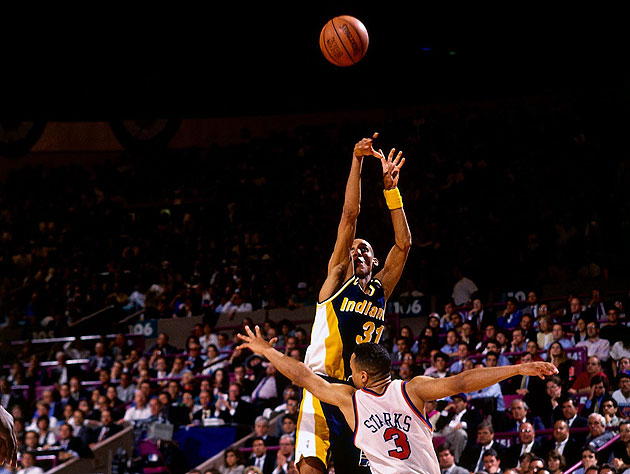
It's difficult for me to write, talk or even think rationally about Reggie Miller, even as a 29-year-old man with a wife and a job and a pretense of balance. I have never hated a player more in my sports-loving life, and I find it hard to believe that I'll ever hate another nearly as much.
Yes, I'm a New York Knicks fan. Why do you ask?
The Knicks played 115 playoff games between 1993 and 2000, and 35 of them came against the Indiana Pacers. Indy won 18, New York won 17 and each team took three of the six postseason series. (You might remember that they made a movie about this.) As I sit here, a decade removed from all that contempt-breeding familiarity, what I remember most isn't elation after the two times (1994 and 1999) that the Knicks beat the Pacers to advance to the NBA Finals; it's the constant, encroaching dread I felt throughout all 35 of those games, irrespective of how they'd finish.
Oh, no — he's going to do it again, isn't he?
Even more than Michael Jordan, Miller was my real-life supervillain. I'll never love MJ because of what his Chicago Bulls did to the Knicks in the '90s, but on some level you realized you were watching that new god flow, that slack-jaw-inspiring something that nobody's team could handle. With Reggie, it all seemed normal, which made it all the more maddening.
All those stupid cross-wrist flicks and those stupid histrionics. Those stupid flailing knees and elbows forever drawing bailout calls, and all that stupid running around all those stupid screens ("YO, REF, HE'S MOVING! SMITS IS MOVING!"). That's not celestial; that's your friend's dorky loudmouth little brother always sneaking just past your reach, and oh, man, are you going to beat the hell out of him ... just as soon as you catch him.
That stupid smirk. He's going to do it again, isn't he? Those stupid daggers.
Those nine stupid seconds.
Miller becomes a Hall of Famer on Friday, one year after being excluded from the ballot entirely, and while the evil he did to people like me in the '90s isn't the full reason he's in Springfield, Mass., it sure as heck didn't hurt.
Plenty of ballplayers have earned enshrinement for their collegiate and international play, and while Miller's resume features a bit of both — he was a two-time All-Pac-10 selection and finished his college career behind Kareem Abdul-Jabbar as the second-leading scorer in UCLA history, and he won gold medals with the U.S. men's national basketball team at the 1994 FIBA World Championship in Canada and the 1996 Summer Olympics in Atlanta — he's heading into the Naismith Memorial Basketball Hall of Fame because of what he did during an 18-year NBA career spent entirely with the Pacers, whose fans didn't even want him at first, because he had committed the cardinal sin of not being Steve Alford. (How'd that work out for you, Pacers fans?)
When weighing that NBA career, the larger-than-life role Miller played in that rivalry with the Knicks is a brick on the scale, because while being the Pacers' all-time franchise leader in a dozen different categories is a great accomplishment, Miller's Hall case has seemed curious ever since he retired after the 2004-05 season. In a weird way, he's sort of like an amped-up NBA mashup of Vinny Testaverde and Joe Namath — a very good player whose candidacy is supported by nearly two decades of counting-stat accumulation and whose legacy is defined by a handful of sensational moments that stamped him as a deadly clutch performer. (For what it's worth, Hoopsworld's Tommy Beer took a scalpel to that notion a couple of years ago; as someone who sees the world through orange-and-blue-tinted glasses, this pleased me greatly.)
[Inductee Don Nelson isn't sure he belongs in basketball Hall of Fame]
Unlike Namath, of course, Miller never won the big one, which is what makes us all take out our microscopes — if a couple balls bounce differently in overtime of Game 4 of the 2000 NBA finals, tying things up with the Los Angeles Lakers ahead of Game 5 at Conseco Fieldhouse, this conversation might unfold a bit differently. But they didn't, so it doesn't, so we consider the counting case:
• Second all time in NBA history in 3-pointers both taken and made;
• Sixth all time in games played;
• Seventh all time in minutes played;
• Ninth all time in free-throw percentage, 12th in free throws made, 24th in free throws attempted;
• 17th on the all-time scoring list;
• 25th all time in field goals attempted, 27th in field goals made;
• Five All-Star appearances, which were not the easiest thing to come by at off-guard in the East during Jordan's era;
• Three All-NBA Third Team selections — behind first-teamers John Stockton and Penny Hardaway and second-teamers Gary Payton and Mitch Richmond in '94-95, Jordan/Penny and Payton/Stockton in '95-96, and MJ/Payton and the immortal Tim Hardaway-Rod Strickland combo in '97-98.
... and the narrative case:
... and especially this, which I will share here out of deference for its existence as historical fact and out of respect for the great Coach Nick, but will not watch again because it is a sunny Friday in Brooklyn and I wish to remain happy:
...
Moving on.
The statistical case is a bit tougher to make. Miller averaged more than 22 points per game just twice in his career, which, for a guy whose value was derived primarily from his ability to score, seems kind of low. His rebounding and assist numbers were subpar even among shot-happy two-guards. Beyond "He averaged about 20 a night," the best thing you can say about his statistical profile is, "He didn't turn the ball over much." (Which is important, to be sure, but isn't exactly eye-popping.)
John Hollinger's catch-all (OK, catch-a-lot) Player Efficiency Rating stat doesn't love Miller — he ranks 81st in PER among retired NBA players (which still makes him a reasonable HoF case, considering 95 retired NBA players are enshrined) and 115th overall if you include still-active performers. Throughout his career, it liked him just fine, pegging his per-minute performance as somewhere between above-average (level-set at 15 every year) and near-All-Star-level (typically, if you're over 20, you're in that ballpark) for 17 of his 18 NBA seasons. But in that measurement — as in all those All-Star reserve appearances, those Third Team selections, those years without any top-10 finishes in Most Valuable Player balloting — Miller always seemed to live a floor or two below the NBA's penthouse.
Even in what PER judges to be his most effective campaign — 1990-91, when he averaged 22.5 points and four assists per 36 minutes, getting to the foul line more than seven times per night despite doing most of his work from the perimeter as opposed to inside amid the tall trees — Miller's PER of 21.2 ranked 19th in the league among qualifying players, just behind the likes of Terry Porter and Mark Price, just ahead of guys like Ricky Pierce and Larry Nance. (A weird sidenote: That '90-91 season saw Miller post the second-lowest 3-point shooting percentage of his career, trailed only by the 32.2 percent mark he managed in his final season.)
That's not intended as shade; other players in the neighborhood that year included Hall of Famers Chris Mullin, Kevin McHale and Scottie Pippen. (In fact, it should probably serve to remind us, more than anything else, that dudes like Porter, Price, Pierce and Nance could cook once upon a time.) But it lends credence to the sense that even Miller's best work wasn't quite on par with the top-level play turned in by his MVP-contending contemporaries.
That said, a handful of advanced statistical metrics do help Miller out:
• When considering his not-necessarily-stunning per-game scoring profile, remember that he played on teams that played at below-league-average paces in 14 of his 18 seasons (including eight years in which Indy sputtered out one of the five slowest offenses in the league);
• He's fifth all time in True Shooting percentage, which measures shooting efficiency by rolling field-goal, 3-point and free-throw accuracy into a single number;
• He's 26th all time in Effective Field Goal percentage, which accounts for the fact that 3-pointers are worth more than 2-pointers, which is mathematically reasonable;
• He's second all time in Offensive Rating, which estimates how many points a player produces per 100 offensive possessions (in Miller's case, 121, on average, for his 18-year career); and
• He's seventh all time in Offensive Win Shares, which estimates the number of wins contributed by a player as a direct result of his offensive output (in Miller's case, 140.4).
Those numbers underline something that anyone who watched Miller knew — that he was an excellent shooter, consistent point-producer and near-metronomic known quantity whom you could pencil in for about 20 points, three boards and three assists per night, every night, from 1989 through 2001. (And I do mean "every night" — in that dozen-year stretch, he missed exactly 14 regular-season games.)
He was the ever-present and forever-revving engine of Indiana teams that repeatedly produced efficient offensive output and made the playoffs 15 times in 18 years, including six Eastern Conference finals and one trip to the NBA finals. And in the crucible of the playoffs, Miller stayed sharp — he used more possessions and shot the ball more, but he became an even more efficient scorer, and his playoff averages (20.2 points, 2.8 rebounds and 2.4 assists per 36 minutes on 44.9 percent from the field, 39 percent from 3-point land and 89.3 percent from the foul line) stayed right in line with his career regular-season marks (19.1/3.2/3.1 per 36 on 47.1/39.5/88.8 shooting splits).
Just staying level statistically in the playoffs is impressive enough when you account for how pace slows, defenses tighten up and overall output dips in the second season; when you remember just how bruising and grueling a gauntlet those Eastern Conference matchups were in the hand-check-heavy '90s, actually improving, even slightly, is pretty damn remarkable. (In the interest of trolling myself, I ran through the box scores for those 35 Pacers/Knicks playoff games, and sure enough, Miller's scoring numbers went up when facing New York — 23.1 points per game on 41.2 percent from long range and 89.5 percent from the line. The jerk.)
Those who'd claim that Miller's longevity-padded resume makes him more of a "Hall of Very Good" candidate than a no-doubt Hall of Famer have an argument, though I think we too rarely consider remaining healthy and productive a skill, and a damned valuable one at that. In a league as volatile as the NBA, consistency matters, and for nearly 20 years, there was no surer bet in the association than Reggie Miller running a half-court marathon, coming off a curl and releasing. (With that stupid cross-wrist flick.)
Miller put Pacers basketball on the NBA map after 12 mostly fallow years following the ABA merger, and for the better part of two decades he put fear in the hearts of every single person whose team was up two on Indy with enough time left for one shot. No, he's not the third-best shooting guard of all time; as our pal Zach Lowe points out, he might not even be in the top 10. But he was an excellent offensive weapon, a unique character in the life of the league and, for one fan base, a nightmare unlike any other. Sounds like it's worth a plaque to me.
(He's just lucky the voters don't factor in your announcing career.)
Many thanks to the brilliant and indispensable Basketball-Reference.com for all the facts and figures.
Other popular content on the Yahoo! network:
• Jeff Passan: LeBron broke hearts but the late Art Modell stole Cleveland's soul
• Bryce Harper hustles his way to monumental milestone
• Nick Saban berates the media for all of their praise on the Crimson Tide
• Y! Games: The worst game franchises they keep making games for
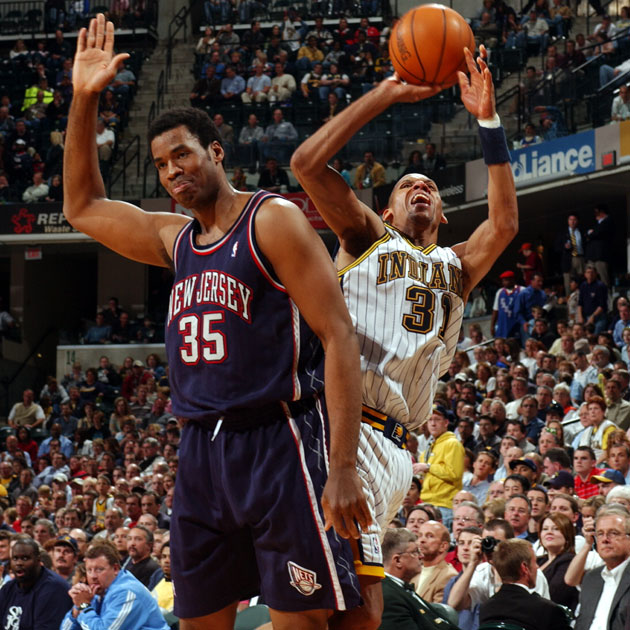
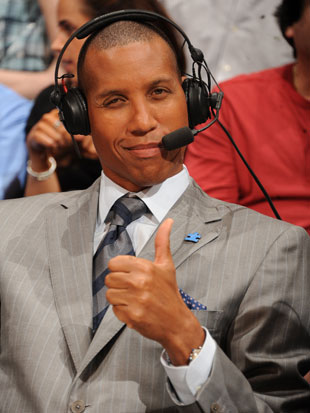 The issue here is training referees to potentially consider that a second's space utilized after a bit of contact, before they blow the whistle, might be their best friend -- even if it results in the usual boos from a crowd that considers a late call (even if it's the correct call) an anathema. For years the NBA has attempted to influence its referees like a high school SAT teacher instructs their worried pupils — go with the first instinct, because it's probably the correct call.
The issue here is training referees to potentially consider that a second's space utilized after a bit of contact, before they blow the whistle, might be their best friend -- even if it results in the usual boos from a crowd that considers a late call (even if it's the correct call) an anathema. For years the NBA has attempted to influence its referees like a high school SAT teacher instructs their worried pupils — go with the first instinct, because it's probably the correct call.
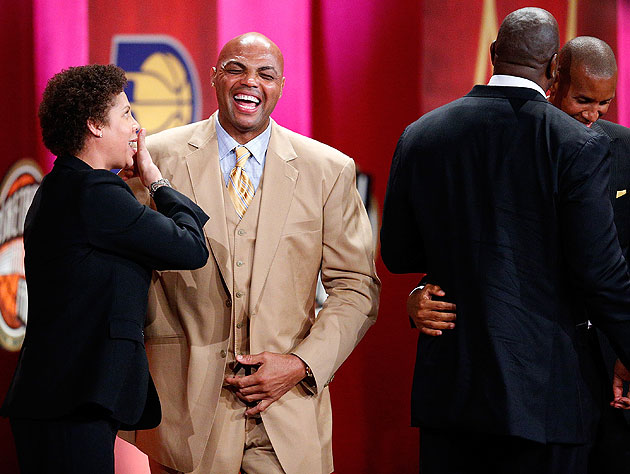
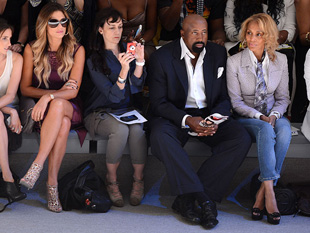 Winner, Larry B: Mrs. Woodson: "Honey, you have to try new things, broaden your horizons."
Winner, Larry B: Mrs. Woodson: "Honey, you have to try new things, broaden your horizons."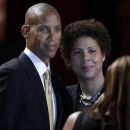

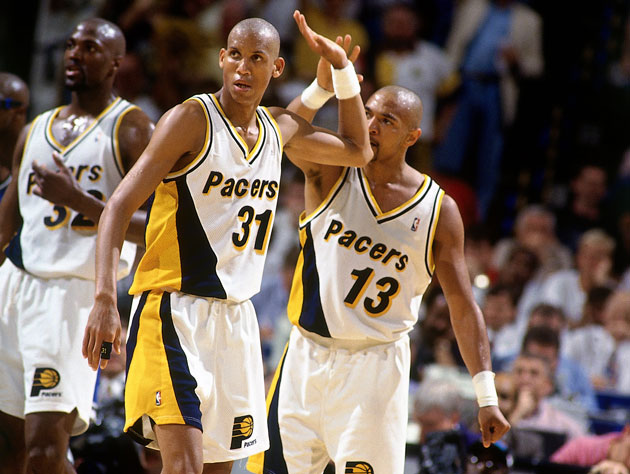
Recent Comments